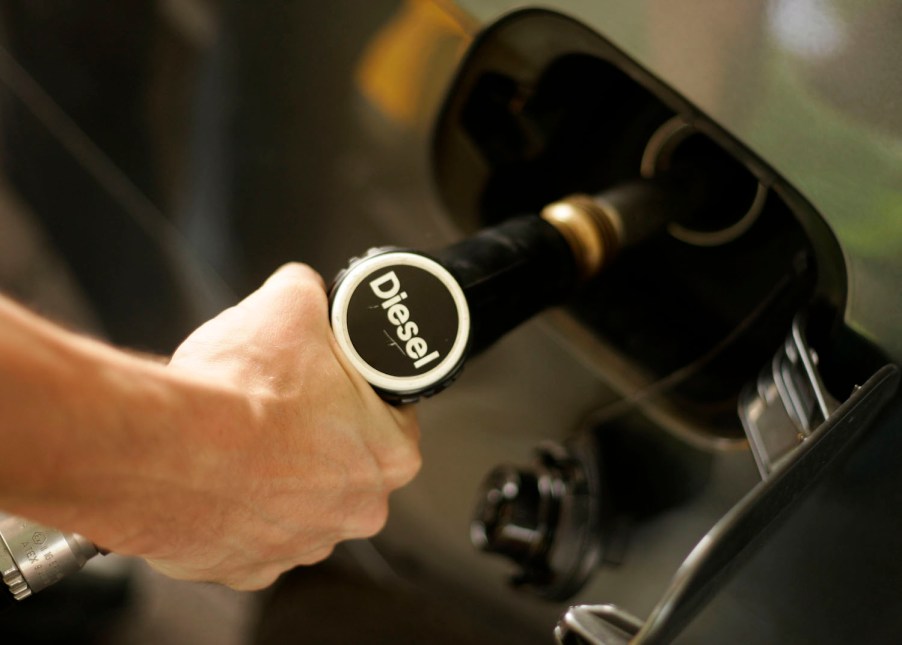
Do Diesel Engines Truly Make More Torque?
Many diesel fans prefer this engine type because it is known for making more torque than a similar gasoline engine. This is not a coincidence or a byproduct of the way we traditionally build our diesel engines. Diesels make more torque than other internal combustion engines because of the properties of diesel fuel and the way diesel engines ignite it.
What is torque?
Torque is a measure of rotational force–or leverage. Put simply, torque is force multiplied by distance.

What does this mean for internal combustion engines? An engine cylinder that creates a lot of combustion power produces more torque. In addition, if that cylinder’s piston travels a long distance it also makes more torque. This is because every combustion’s energy transfers more of its force into rotating the engine’s mainshaft.
The gasoline engines with the highest torque have large displacements. They also have longer piston travel. This translates to a lot of “low-end” power: these engines pull hard from the moment you first step on the gas. (This phenomenon is also referred to as a “flat torque curve“) But even in gasoline engines, large cylinders and a long piston travel do not lend themselves well to revving to higher RPM.
Automakers often build diesel engines with a longer stroke. But there are several additional reasons diesel engines make more torque than comparable gasoline engines.
Why do diesel engines make more torque?
Diesel fuel contains more potential energy than gasoline fuel. This alone would give diesel engines more torque. In addition, diesel pistons travel further into the combustion cylinder, further compressing the air trapped there, and this also increases the engine’s torque.

The reason diesel engines produce more torque comes down to the difference between gasoline and diesel fuel. According to Engineering Explained on Youtube, diesel fuel simply contained 10-15% more energy than the same amount of gasoline. If this fuel were the only difference between gasoline and diesel engines, the diesel engines would produce more force and thus more torque.
Because of the differences between gasoline and diesel fuels, the two types of engines ignite their fuel in different ways. A gasoline engine uses its pistons to compress a mixture of gasoline and air, then uses a spark plug to ignite the mixture and force the piston back down, thus rotating the crankshaft.
A diesel engine, on the other hand, compresses air to a much higher PSI–and thus a much higher temperature. Then it injects atomized diesel fuel into the cylinder. The pressure and heat combust the fuel–not a spark plug.
This difference between diesel and gas combustion has two effects: Firstly a diesel piston must travel higher into the cylinder. This gives the diesel engine a higher “compression ratio.” It also increases the engine’s piston travel, and thus its stroke.
Secondly, the diesel fuel in every part of the cylinder ignites at the same time. This means that the explosion in the diesel engine pushes harder against the piston from the get-go, further increasing its effective stroke, and producing more force.
Are diesel engines better?
Diesel and gas engines are simply different tools for different jobs. High-torque diesels tend to produce more power at lower RPM but struggle to accelerate to high RPM and make a lot of horsepower. In addition, diesel engines tend to be heavier and more expensive to manufacture than gasoline engines.

Next, read why only one half-ton truck still offers a diesel or watch how a diesel engine’s bore/stroke ratio and air/fuel ratio both contribute to its high torque numbers:



